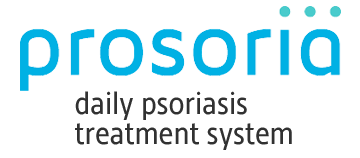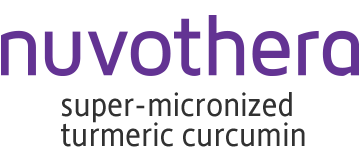Is Psoriatic Arthritis Hereditary?
11 Dec 18

Psoriasis affects an estimated 7.5 million Americans and over 125 million people worldwide. It is a deeply complex disease and the most prevalent immune-mediated disorder in the United States. About 60 percent of people with psoriasis report that the disease has a serious impact on their daily lives.
Estimates suggest that 10 to 30 percent of those with psoriasis will also develop psoriatic arthritis. Let’s take a closer look at what causes psoriatic arthritis and determine if there are psoriatic arthritis hereditary factors. The good news is that with the wealth of treatment options available for psoriasis and you can learn to manage your psoriatic arthritis so it does not rule your life.
So, is psoriatic arthritis hereditary?
Understanding the Symptoms of Psoriatic Arthritis
While it’s not a hard and fast rule, most people who develop psoriatic arthritis start with psoriasis. Psoriasis is characterized mainly by skin lesions, known as plaques, that appear as dry, raised patches that often feel itchy and painful. These patches most often appear on the elbows, scalp, and knees, but they can otherwise appear just about anywhere on your skin.
Psoriasis can potentially develop into psoriatic arthritis. Symptoms of psoriatic arthritis can range in severity from person to person. The disorder is most often characterized by swelling, stiffness, and pain in the joints and tendons. Other common symptoms include:
- General fatigue
- Sausage-like swelling in the fingers and toes (dactylitis)
- A reduced range of motion
- Stiffness that is worse in the morning
- Pain and redness in the eye resembling conjunctivitis (pink eye)
- Changes in your nails, including pitting, deformation, the appearance of a fungal infection, and separation from the nail bed
Psoriasis and psoriatic arthritis signs and symptoms can occur in cycles of flare-ups that last a few weeks or months before subsiding or going into remission. Psoriatic arthritis Flare-ups are often caused by certain environmental triggers.
If left untreated for even as little as six months, psoriatic arthritis can potentially result in permanent joint damage.
Understanding Autoimmunity
Psoriasis and psoriatic arthritis are both autoimmune diseases. Your immune system is vastly complicated, working within all your other organ systems to fight off potentially harmful microbes, heal damaged tissue, and otherwise maintain your overall health. When it is functioning properly, your immune system is integral to your everyday existence.
Sometimes, the immune system malfunctions. Instead of combatting foreign bacteria or viruses, the immune system mistakenly attacks healthy tissues and organs, believing them to be a threat. This causes ongoing damage and chronic inflammation. Inflammation, which is characterized by redness and swelling, is a necessary part of the immune response on its own, signaling that damaged tissue needs to be healed or treated. Chronic inflammation spells pain and problems for your everyday life.
The Immune System and Psoriatic Arthritis
With psoriasis, the immune system mistakenly attacks your healthy skin cells while also speeding up the production of new skin cells. This essentially causes a speed up in your skin cells’ natural cycle, causing new skin to move to the outermost layer too soon. Skin cells build up, resulting in the disease’s characteristic skin lesions. The abnormal immune response that damages your skin cells can also cause inflammation in your joints, resulting in the swelling, pain, and tenderness characteristic of psoriatic arthritis.
Psoriatic Arthritis and Genes
Experts are not sure what actually causes the irregular immune responses that result in autoimmune diseases like psoriasis and psoriatic arthritis. Research is still ongoing, and there is a general understanding that genes and family history play a large role in the development of psoriatic arthritis.
About one in three people with psoriasis have a relative with psoriasis. Genetic studies show that a child has about a 10 percent chance of contracting the skin disease if one parent has psoriasis. If both parents have psoriasis, that chance increases to 50 percent. Some studies suggest that about 10 percent of the population inherits one or more of the genes that may result in higher chances of contracting psoriasis.
People who have an inherited tendency may also trigger psoriatic arthritis following some sort of physical trauma or a viral or bacterial infection. This is known as the Koebner phenomenon.
However, there is truly no way to predict who will get psoriatic arthritis. Even if you have a relative with psoriasis or have inherited the gene, you may live your life without ever contracting the disease. If you do believe you have psoriatic arthritis, the best way to know for sure is to consult your doctor for a professional diagnosis.
Sources:
- https://www.psoriasis.org/content/statistics
- https://www.psoriasis.org/about-psoriasis
- https://www.psoriasis.org/about-psoriatic-arthritis
- https://www.livescience.com/26579-immune-system.html

